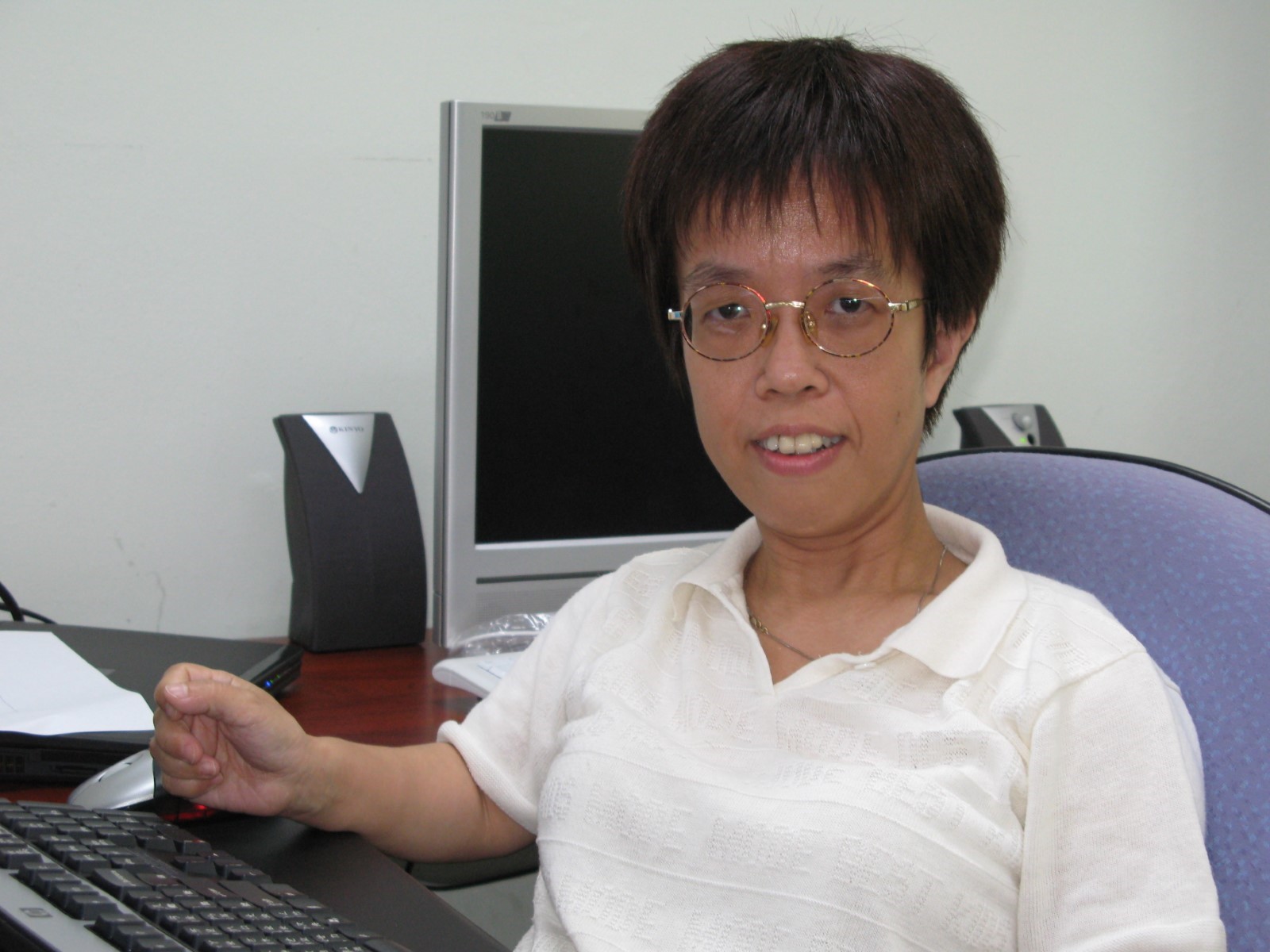A Workshop Proposal for the 28th Global Chinese Conference on Computers in Education (2024)
Jerry Chih-Yuan Sun, Sherry Y. Chen, Hui-Chun Chu, Ken-Zen Chen, Shih-Jou Yu, and Chiung-Fang Chang
1. Workshop topic: Innovative Technologies for Enhancing Interactions and Learning Motivation
2. Language medium(s): Bilingual
3. Workshop abstract / A draft of the Call for Workshop Papers:
Given the rapid developments in educational technology, innovative technologies have been used in a variety of ways at the higher education level. Specifically, the use of innovative technologies is becoming more common in academic settings, especially at the higher education level (Kiriakidis et al., 2018). One of the main problems with the traditional lecture format is that students’ levels of motivation tend to be low, and therefore their learning may also suffer. Innovative technologies provide opportunities to enhance learning motivation (Hung et al., 2023) and promote interactions during learning progress, positively affecting students’ learning experiences (Yu et al., 2021). Studies have confirmed the positive effects of innovative technologies on learning, which include increasing intrinsic motivation (Sun & Hsieh, 2018), enhancing self-efficacy (Sun & Hsu, 2019; Sun & Rueda, 2012), stimulating learning interest (Sun et al., 2023; Yu et al., 2019) , and improving learning outcomes (Yu et al., 2021; Yu et al., 2019) or levels of engagement (Sun et al., 2023; Sun et al., 2019). Thus, it is important to ensure that the applications of innovative technologies could help instructors enhance students’ learning interactions and motivation.
Due to learning motivation being a complex psychological variable related to various factors, this workshop expands the notion of learning motivation to its relative factors. Schunk et al. (2020) summarized the theoretical and conceptual perspectives of learning motivation, including expectancy-value theory, attribution theory, social cognitive theory, goal theory, interest and affect, and intrinsic and extrinsic motivation. In addition, Pintrich et al. (1993) considered cognitive factors of motivation: attention, problem-finding and solving, metacognitive evaluation, and self-regulation. Therefore, the workshop welcomes all submissions using innovative technologies to enhance learning motivational factors, such as self-efficacy, goal orientation, learning interest, anxiety, intrinsic and extrinsic motivation, or any antecedents or consequences of learning motivational factors, such as self-determination, learning behavior or learning performance.
To address the issues of promoting interactions and learning motivation, the purpose of this workshop is to invite submissions that apply various designs, teaching strategies, tools, or devices related to innovative technologies. In this workshop, the content of innovative technologies may include Interactive Response Systems (IRS), bio-feedback, feedback based on learning analytics, online feedback, Augmented Reality (AR)/Virtual Reality (VR)-based feedback, feedback on wearable devices, and chatbot feedback. The innovative technologies are not limited to the innovation of the teaching/learning devices; we also welcome submissions for innovative instructional design, strategies for using the technological tools, innovative perspectives, and research outcomes of relevant topics. In summary, this workshop focuses on innovative technologies for enhancing interactions and learning motivation. The workshop creates opportunities for researchers from various domains to present their research findings. The findings of each work in this workshop could stimulate future research studies for enhancing interactions and learning motivation.
In this workshop, we particularly invite research papers focusing on the following topics of interest which may focus on, but are not restricted to:
Mobile and ubiquitous learning for enhancing learning motivation
Personalized learning for enhancing learning motivation
Innovative technology-enhanced learning strategies for enhancing learning motivation
Innovative technologies for enhancing learning motivation
Evaluations and assessment of technology-enhanced environment for enhancing learning motivation
Interactive Response Systems (IRS) for enhancing learning motivation
Bio-feedback for enhancing learning motivation
Feedback based on learning analytics for enhancing learning motivation
Augmented Reality (AR)/Virtual Reality (VR)-based feedback for enhancing learning motivation
Online feedback for enhancing learning motivation
Feedback on wearable devices for enhancing learning motivation
Chatbot feedback for enhancing learning motivation
Flipped classroom strategies for enhancing learning motivation
Any other types of learning technologies or strategies for enhancing learning or learning motivation.
Submitted manuscripts will be selected and recommended to the following journals:
Journal of Internet Technology (SCIE)
Journal of Humanities and Social Sciences of National Taiwan University of Science and Technology
4. Names, affiliations, emails, and short biographies of the workshop chair and co-chairs:

Jerry Chih-Yuan Sun (jerrysun@nycu.edu.tw) is a Distinguished Professor in the Institute of Education (Division of eLearning)/Center for Teacher Education at the National Yang Ming Chiao Tung University in Taiwan, where he leads the Interactive Learning Technology and Motivation Lab (see http://ILTM.lab.nycu.edu.tw). He holds a doctoral degree in education and a master’s degree in computer science from the University of Southern California. His major research interests are integrating various types of innovative technology-enabled feedback, including IRS, EEG bio-feedback, and online smart feedback, as well as investigating how these learning environments influence students’ motivation. In 2016 and 2021, Dr. Sun received the Ta-You Wu Memorial Award for Young Scholars’ Research Excellence and Outstanding Research Award from Taiwan’s Ministry of Science and Technology (MOST), respectively. His projects have focused on the development of interactive feedback technologies and relevant teaching strategies, and investigated the corresponding effects on students’ motivation.

 Sherry Y. Chen (sherry@cl.ncu.edu.tw) is currently a Chair Professor at Graduate Institute of Network Learning Technology, National Central University, Taiwan and a Visiting Professor in the School of Information Systems, Computing and Mathematics at Brunel University, UK. In 2010 and 2017, she was granted an Outstanding Scholar Award from the Foundation for the Advancement of Outstanding Scholarship and Ministry of Science and Technology. Her main research interest follows her PhD work to investigate how to develop individualized information space that can accommodate users’ individual differences, including collaborative learning, digital libraries, game-based learning, mobile learning, and web-based learning. She has more than 150 publications in these areas.
Sherry Y. Chen (sherry@cl.ncu.edu.tw) is currently a Chair Professor at Graduate Institute of Network Learning Technology, National Central University, Taiwan and a Visiting Professor in the School of Information Systems, Computing and Mathematics at Brunel University, UK. In 2010 and 2017, she was granted an Outstanding Scholar Award from the Foundation for the Advancement of Outstanding Scholarship and Ministry of Science and Technology. Her main research interest follows her PhD work to investigate how to develop individualized information space that can accommodate users’ individual differences, including collaborative learning, digital libraries, game-based learning, mobile learning, and web-based learning. She has more than 150 publications in these areas.
Hui-Chun Chu (carolhcchu@gmail.com) is currently a Distinguished Professor at the Department of Computer Science and Information Management at Soochow University, where she also serves as the chairman. Dr. Chu serves as an editorial board member and a reviewer for more than 15 academic journals. Her research interests include mobile and ubiquitous learning, game-based learning, flipped learning, technology-assisted healthcare education, AI in medical diagnosis and education, and knowledge engineering in education. Dr. Chu has published more than 155 academic papers, including 68 academic journal papers, of which 44 are published in well-recognized SSCI and SCI journals. Owing to her distinguished academic performance and service in e-learning, she received the Annual Young Scholars Outstanding Researcher Award--Ta-You Wu Memorial Award from the Ministry of Science and Technology in 2014. In addition, she received the Outstanding ICT Elite Award in 2020 and the 2022 K. T. Li Women's Outstanding Research Award. She has also served as the Associate Editor of IEEE Transactions on Learning Technologies (SSCI, Q1) since 2015, and was the guest editor of Interactive Learning Environments (SSCI, Q1) in 2013 and 2016.

 Ken-Zen Chen (kenzenchen@nycu.edu.tw) is currently an Associate Professor in the Institute of Education (Division of eLearning)/Center for Teacher Education at National Yang Ming Chiao Tung University. Dr. Chen has broad research interests & backgrounds in the areas of educational technology, learning sciences, big-data analytics in education, and curriculum & instruction. Beginning in 2016, Dr. Chen has collaborated with Dr. Barbara Oakley to transform the famous "Learning How to Learn" MOOCs into a series of courses suitable for Chinese learners. Currently, the courses on each platform have been taken by more than 100,000 people and has been a great success. In addition, Dr. Chen’s past research topics include digital gaps, digital fraud, teacher digital teaching professional development, curriculum and teaching, overseas Taiwanese school research, etc.
Ken-Zen Chen (kenzenchen@nycu.edu.tw) is currently an Associate Professor in the Institute of Education (Division of eLearning)/Center for Teacher Education at National Yang Ming Chiao Tung University. Dr. Chen has broad research interests & backgrounds in the areas of educational technology, learning sciences, big-data analytics in education, and curriculum & instruction. Beginning in 2016, Dr. Chen has collaborated with Dr. Barbara Oakley to transform the famous "Learning How to Learn" MOOCs into a series of courses suitable for Chinese learners. Currently, the courses on each platform have been taken by more than 100,000 people and has been a great success. In addition, Dr. Chen’s past research topics include digital gaps, digital fraud, teacher digital teaching professional development, curriculum and teaching, overseas Taiwanese school research, etc.
Shih-Jou Yu (sjyu@nycu.edu.tw) is currently a postdoctoral research scholar and an adjunct assistant professor in the Institute of Education/Center for Teacher Education at the National Yang Ming Chiao Tung University. Dr. Yu also serves as an adjunct assistant professor in the Interdisciplinary Program of Education at the National Tsing Hua University. Her major research interests are integrating interactive technologies and personalized/intelligent feedback to examine learners’ motivation and cognitive load for both formal and informal curricula. Interactive technologies include wearable technologies, augmented reality, virtual reality, chatbots, and educational robots.

Chiung-Fang Chang (cfchang.edu@gmail.com) is currently a postdoctoral scholar in the Research Center of Higher Educational Resources for Openness and an adjunct assistant professor in the Institute of Education at the National Yang Ming Chiao Tung University. Her research project is to investigate the effects of group regulation combined with virtual reality on students’ motivation and learning outcomes. Past research has covered the influence of teacher motivation and social-emotional competency, such as social goal orientations and self-efficacy, on teacher-student interaction and teacher psychological adjustment. Her research interests include applying learning sciences and technological innovation to integrate learning needs and teacher professional development to promote positive learning experiences and online learning.
5. Workshop committee:
Chih-Ming Chu, National Ilan University, Taiwan
Jiun-Yu Wu, National Yang Ming Chiao Tung University, Taiwan
Han-Yu Sung, National Taipei University of Nursing and Health Sciences, Taiwan
Chia-Sheng Lin, Ming Chuan University, Taiwan
Sunny San-Ju Lin, National Yang Ming Chiao Tung University, Taiwan
Yu-Ren Lin, National Tsing Hua University, Taiwan
Kai-Yi Chin, Soochow University, Taiwan
Cheng-Yu Hung, Central China Normal University, China
Lu-Ho Hsia, National Chin-Yi University of Technology, Taiwan
Ben Chang, National Central University, Taiwan
Chih-Hung Chen, National Taichung University of Education, Taiwan
Hsin-Tzu Chen, Chinese Culture University, Taiwan
Cheng-Huan Chen, Asia University, Taiwan
Yang-Hsueh Chen, National Chengchi University, Taiwan
Tzu-Chi Yang, National Yang Ming Chiao Tung University, Taiwan
Kun-Hung Cheng, National Chung Hsing University, Taiwan
Chih-Hung Lai, National Dong Hwa University, Taiwan
References
Hung, C.-Y., Lin, Y.-T., Yu, S.-J., & Sun, J. C.-Y. (2023). Effects of AR- and VR-based wearables in teaching English: The application of an ARCS model-based learning design to improve elementary school students’ learning motivation and performance. Journal of Computer Assisted Learning. https://doi.org/10.1111/jcal.12814
Kiriakidis, S., Kefallonitis, E., & Kavoura, A. (2018). The effect of innovative communication technologies in higher education. In M. Khosrow-Pour (Ed.), Encyclopedia of information science and technology (4th ed., pp. 3827-3838). IGI Global.
Pintrich, P. R., Marx, R. W., & Boyle, R. A. (1993). Beyond cold conceptual change: The role of motivational beliefs and classroom contextual factors in the process of conceptual change. Review of Educational Research, 63(2), 167-199. https://doi.org/10.3102/00346543063002167
Schunk, D. H., Meece, J. R., & Pintrich, P. R. (2020). Motivation in education: Theory, research, and applications (4th ed.). Pearson.
Sun, J. C.-Y., & Hsieh, P.-H. (2018). Application of a gamified interactive response system to enhance the intrinsic and extrinsic motivation, student engagement, and attention of English learners. Educational Technology & Society, 21(3), 104-116. https://www.jstor.org/stable/26458511
Sun, J. C.-Y., & Hsu, K. Y.-C. (2019). A smart eye-tracking feedback scaffolding approach to improving students’ learning self-efficacy and performance in a C programming course. Computers in Human Behavior, 95, 66-72. https://doi.org/10.1016/j.chb.2019.01.036
Sun, J. C.-Y., & Rueda, R. (2012). Situational interest, computer self-efficacy and self-regulation: Their impact on student engagement in distance education. British Journal of Educational Technology, 43(2), 191-204. https://doi.org/10.1111/j.1467-8535.2010.01157.x
Sun, J. C.-Y., Ye, S.-L., Yu, S.-J., & Chiu, T. K. F. (2023). Effects of wearable hybrid AR/VR learning material on high school students’ situational interest, engagement, and learning performance: The case of a physics laboratory learning environment. Journal of Science Education and Technology, 32, 1-12. https://doi.org/10.1007/s10956-022-10001-4
Sun, J. C.-Y., Yu, S.-J., & Chao, C.-H. (2019). Effects of intelligent feedback on online learners’ engagement and cognitive load: The case of research ethics education. Educational Psychology, 39(10), 1293-1310. https://doi.org/10.1080/01443410.2018.1527291
Yu, S.-J., Hsueh, Y.-L., Sun, J. C.-Y., & Liu, H.-Z. (2021). Developing an intelligent virtual reality interactive system based on the ADDIE model for learning pour-over coffee brewing. Computers & Education: Artificial Intelligence, 2, Article 100030. https://doi.org/10.1016/j.caeai.2021.100030
Yu, S.-J., Sun, J. C.-Y., & Chen, O. T.-C. (2019). Effect of AR-based online wearable guides on university students' situational interest and learning performance. Universal Access in the Information Society, 18(2), 287-299. https://doi.org/10.1007/s10209-017-0591-3

